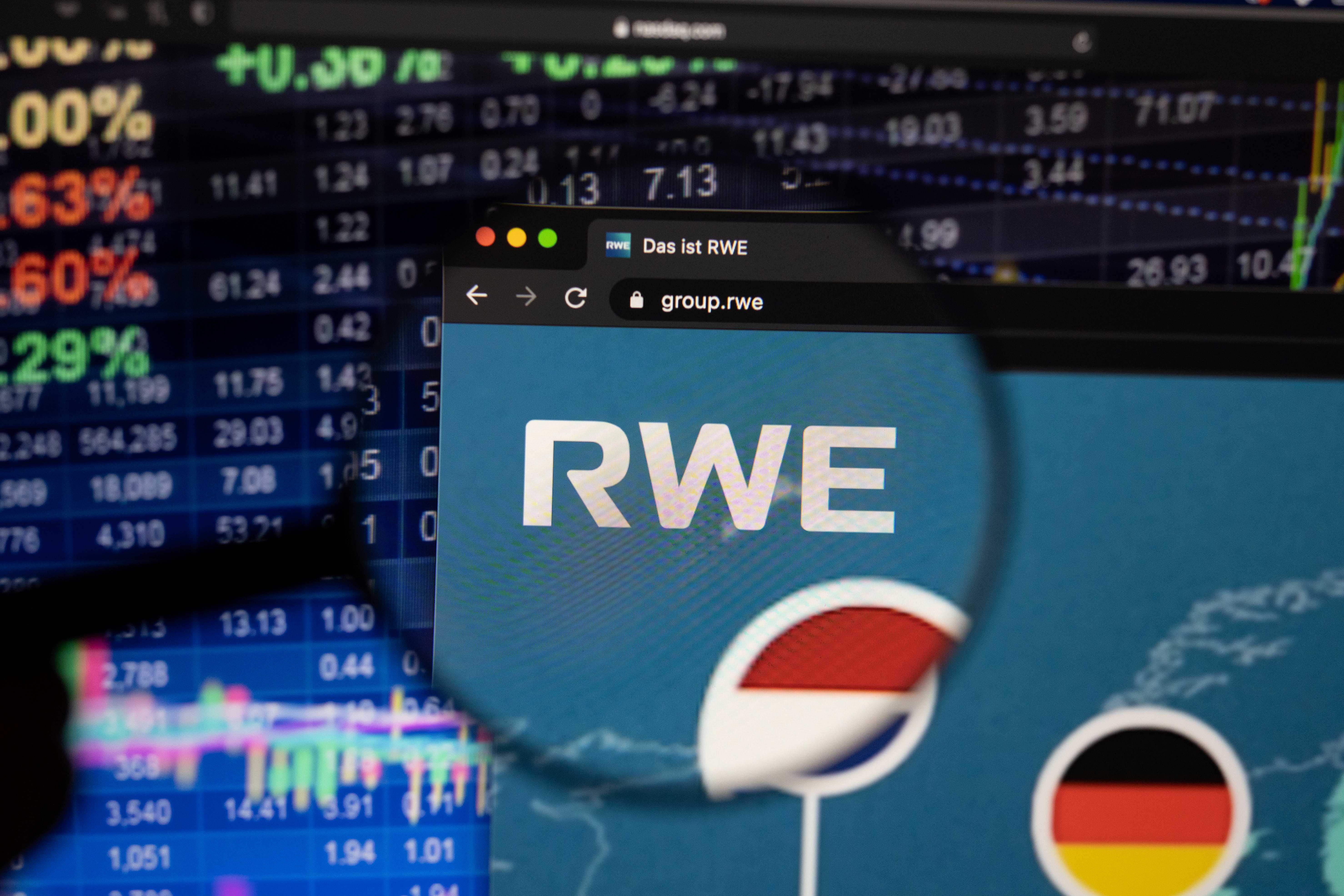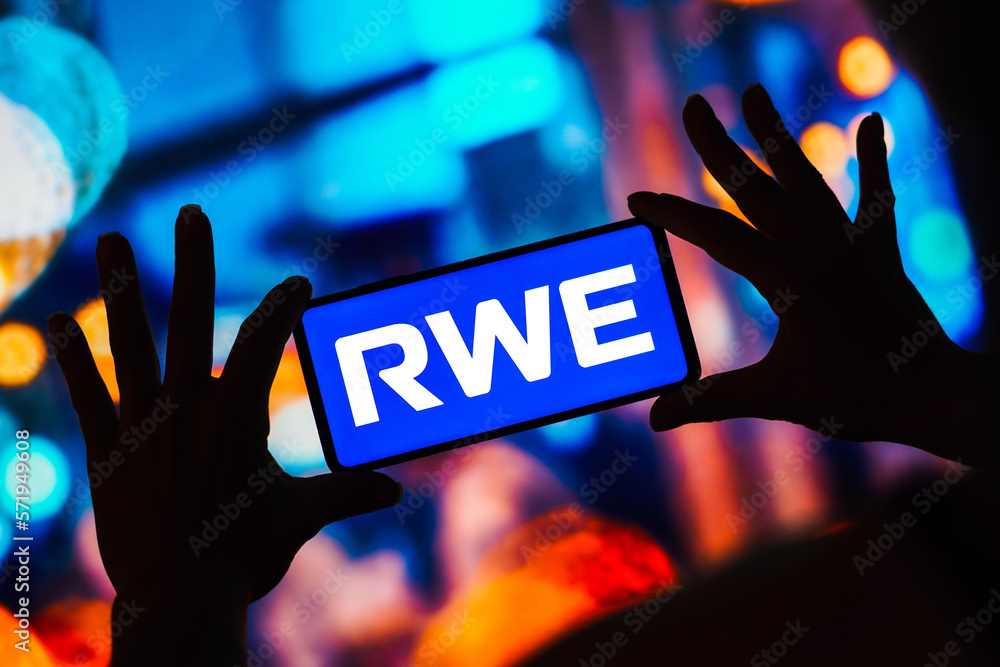
Article
RWE AG stands at the forefront of the energy transition, demonstrating how strategic repositioning and innovative sustainability initiatives can deliver both environmental impact and financial returns. As the company transforms from a traditional utility into a capital-disciplined renewables platform, its comprehensive approach to resource efficiency and circular economy principles offers valuable insights for institutional investors evaluating ESG investment opportunities.
The German energy giant's systematic approach to sustainability extends far beyond conventional renewable energy projects. Through advanced battery storage systems, hydrogen commercialization partnerships, circular economy innovations, and biodiversity preservation programs, RWE exemplifies how traditional energy companies can successfully navigate the transition to net-zero operations while maintaining operational excellence and shareholder value.

Strategic Repositioning for Capital Discipline
RWE's transformation into a focused renewables platform demonstrates sophisticated capital allocation strategies that institutional investors increasingly value. The company has systematically tightened return thresholds while selectively scaling projects that align with both operational sustainability requirements and net-zero ambitions. This repositioning strategy prioritizes projects that deliver measurable returns on invested capital while contributing to long-term decarbonization objectives. By maintaining strict financial discipline in project selection, RWE ensures that sustainability initiatives generate tangible value rather than merely serving as compliance exercises. The company's approach provides a compelling case study for how traditional energy companies can execute strategic pivots without compromising financial performance. This balance between environmental stewardship and capital discipline positions RWE as an attractive investment opportunity for ESG-focused portfolios seeking exposure to the energy transition.
Advanced Energy Storage and Grid Stability Solutions
RWE's commissioning of an "inertia-ready" battery energy storage system in Moerdijk represents a significant technological advancement in grid infrastructure. This facility, the first of its kind operating on the Central European grid, addresses critical challenges associated with renewable energy integration at scale. The Moerdijk system demonstrates how energy storage technologies can provide grid stability services while supporting the expansion of variable renewable energy sources. As renewable capacity increases across European markets, such infrastructure investments become essential for maintaining system reliability and ensuring optimal energy utilization. For institutional investors, this initiative highlights RWE's commitment to developing revenue-generating infrastructure that supports broader renewable energy deployment. The system's ability to provide ancillary services to grid operators creates multiple revenue streams while contributing to overall system efficiency.
Hydrogen Commercialization and Industrial Partnerships
RWE's strategic partnership with TotalEnergies represents a significant milestone in hydrogen commercialization efforts. The 15-year offtake agreement for approximately 30,000 tons per annum of green hydrogen from 2030 to TotalEnergies' Leuna refinery establishes a predictable revenue stream while supporting industrial decarbonization objectives. This partnership extends beyond simple hydrogen supply arrangements. RWE's marketing of capacity at the Gronau-Epe hydrogen storage site demonstrates the company's integrated approach to hydrogen value chain development. Such strategic positioning enables RWE to capture value across multiple segments of the emerging hydrogen economy. The initiative exemplifies sector coupling strategies that connect renewable energy generation with industrial applications. By establishing long-term commercial relationships with major industrial partners, RWE reduces execution risk while creating stable cash flows from hydrogen operations.

Water Management and Environmental Stewardship
RWE's comprehensive water management programs in legacy mining regions demonstrate sophisticated environmental remediation capabilities. The company operates dedicated water-table management and drainage networks that continue to mitigate environmental impact and safeguard water conservation during and after lignite extraction operations. These systems represent significant ongoing investments in environmental restoration that extend well beyond regulatory compliance requirements. The company's commitment to maintaining these systems demonstrates long-term environmental stewardship that reduces future liability risks while supporting local ecosystem health.
For ESG-focused investors, RWE's water management initiatives provide tangible evidence of environmental responsibility in legacy operations. The systematic approach to water conservation and environmental protection creates measurable positive outcomes that support broader sustainability objectives.
Circular Economy Innovation in Wind Energy
RWE's implementation of recyclable rotor blades at the 1.4-GW Sofia offshore wind farm, developed in partnership with Siemens Gamesa, represents a significant advancement in circular economy principles within renewable energy infrastructure. This initiative addresses end-of-life considerations for wind turbine components, a critical sustainability challenge as the global wind fleet continues to expand. The Sofia project establishes closed-loop systems and material recovery processes directly within offshore wind supply chains. This approach reduces waste generation while creating potential revenue streams from recovered materials, demonstrating how circular economy principles can enhance project economics rather than simply adding costs. Such innovations position RWE as a leader in sustainable offshore wind development. The company's focus on end-of-life planning and material recovery creates competitive advantages while addressing growing investor concerns about waste management in renewable energy projects.
Solar Panel Recycling and End-of-Life Management
RWE's partnership with Solarcycle for processing end-of-life solar panels from multiple U.S. projects reinforces the company's commitment to circular economy principles across its renewable energy portfolio. This initiative addresses a critical sustainability challenge as first-generation solar installations reach end-of-life status. The partnership demonstrates proactive planning for asset lifecycle management while creating pathways for material recovery and reuse. Such forward-thinking approaches reduce long-term environmental liabilities while potentially generating additional revenue streams from recovered materials. For institutional investors evaluating solar energy investments, RWE's approach to end-of-life management provides a model for responsible asset stewardship that addresses growing regulatory and stakeholder expectations around waste management in renewable energy.
Agri-Photovoltaic Innovation and Land Use Optimization
RWE's commercial Agri-PV initiative in Italy (19.1 MWac) and demonstration results at Bedburg showcase innovative approaches to land use optimization that address competing demands for agricultural production and renewable energy generation. The "double harvest" concept enables simultaneous agricultural yields and renewable energy production on the same land parcels. These initiatives demonstrate how renewable energy development can complement rather than compete with agricultural activities. By maintaining agricultural productivity while generating clean energy, Agri-PV systems create multiple revenue streams from single land parcels while supporting food security objectives. The successful implementation of Agri-PV systems positions RWE at the forefront of sustainable land use practices. This approach addresses critical concerns about renewable energy development impacting agricultural land availability while creating innovative business models that benefit multiple stakeholder groups.

Comprehensive Biodiversity and Landscape Restoration
RWE's recultivation programs across the Rhenish district have restored over 233 square kilometers with more than 50 landscape lakes, demonstrating large-scale ecosystem restoration capabilities. These programs create measurable biodiversity benefits while transforming former mining areas into valuable recreational and ecological assets. The systematic approach to landscape restoration extends beyond regulatory requirements to create lasting environmental benefits. The restoration programs support local biodiversity while providing recreational amenities that benefit surrounding communities, demonstrating how energy companies can generate positive social and environmental outcomes. For investors focused on nature-based solutions and biodiversity preservation, RWE's restoration programs provide concrete examples of large-scale environmental restoration success. The measurable outcomes from these initiatives support broader sustainability narratives while creating tangible community benefits.
Strategic Implications for Sustainable Investment
RWE's comprehensive approach to sustainability demonstrates how traditional energy companies can execute successful transitions to renewable energy platforms while maintaining financial discipline and generating measurable environmental benefits. The company's systematic integration of circular economy principles, biodiversity preservation, and advanced technology deployment creates a robust framework for sustainable business operations. The diverse portfolio of sustainability initiatives positions RWE as a compelling investment opportunity for institutional investors seeking exposure to the energy transition. The company's focus on revenue-generating sustainability projects rather than compliance-driven initiatives ensures that environmental stewardship contributes to long-term financial performance rather than simply adding costs. Through strategic partnerships, technological innovation, and comprehensive environmental stewardship, RWE exemplifies how resource efficiency and sustainability leadership can create competitive advantages in rapidly evolving energy markets. For sophisticated investors evaluating ESG opportunities, RWE's transformation provides a blueprint for successful energy transition investments that deliver both financial returns and measurable environmental impact.
